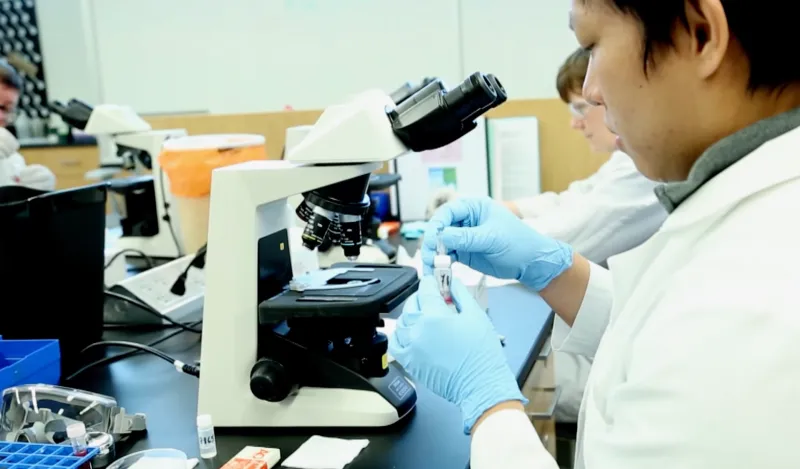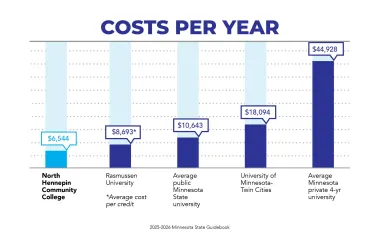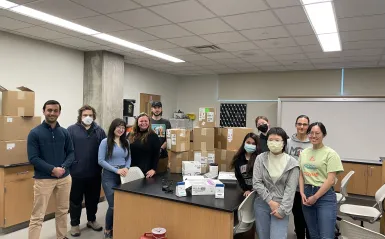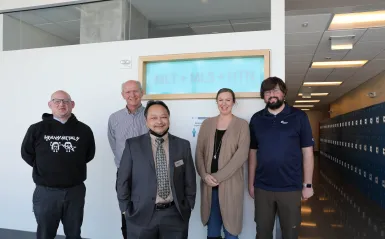MLT Application
The Fall 2025 MLT program cohort is filled, so admission is currently closed. MLT program applications will open in December with a March 1, 2026 application deadline for a Fall 2026 program start. In the meantime, you can apply to NHCC and get started on your general education courses. Your academic advisor will help you plan your courses.
Medical Laboratory Technology Classes at NHCC
NHCC's Medical Laboratory Technology program is very hands-on. Students learn through a mix of classroom and skills-based lab activities.
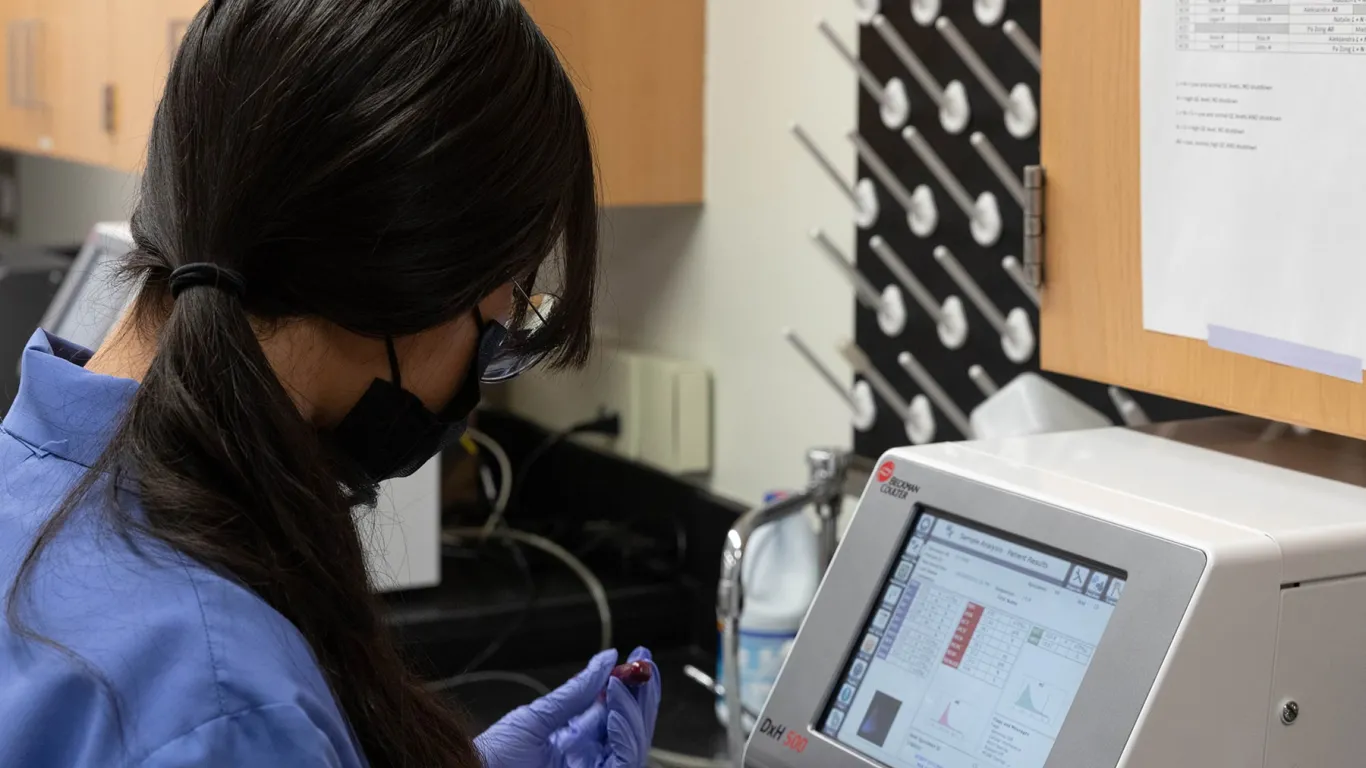
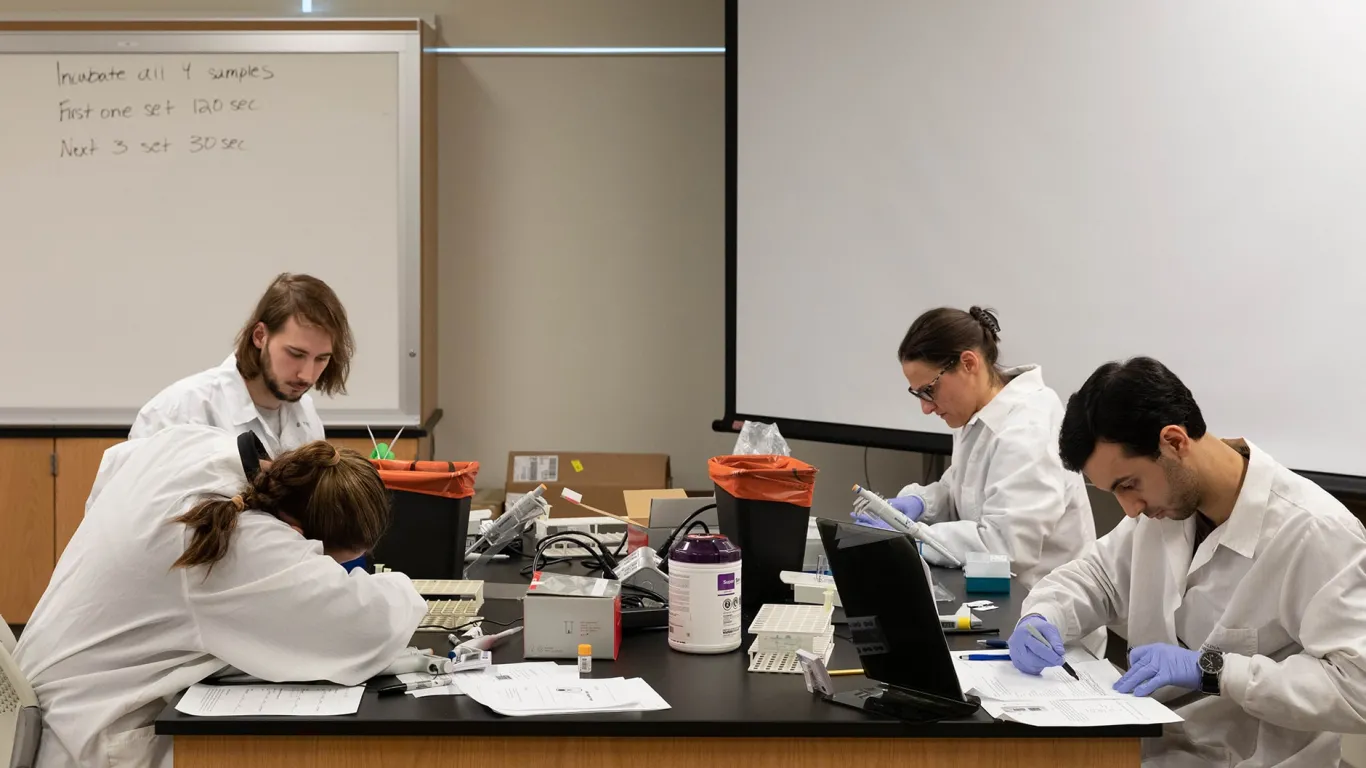
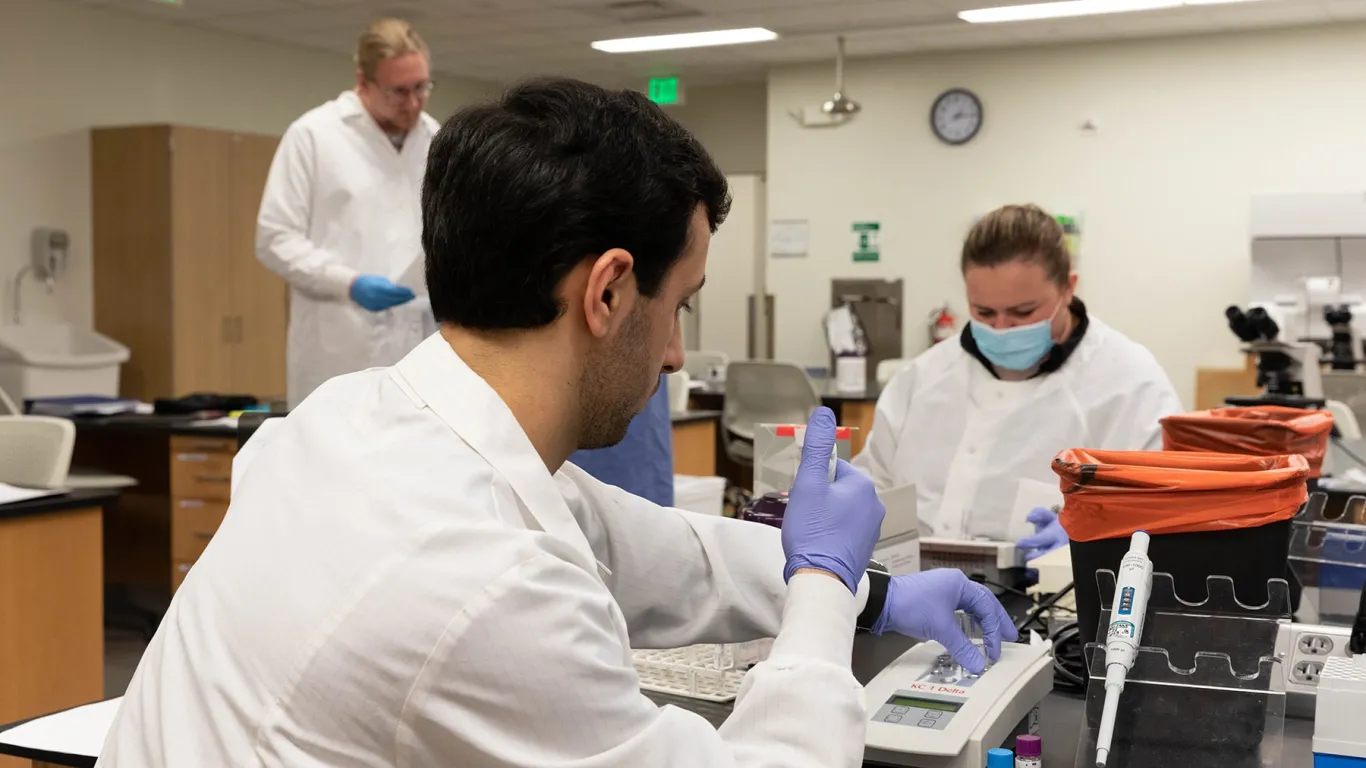


Career Outlook
The Medical Laboratory Technology AAS degree prepares graduates for an entry-level career in healthcare. Medical Lab Technicians (MLTs) are in-demand and play an essential role in hospital and clinic settings. MLTs perform routine laboratory tests to diagnose, treat, and prevent diseases. They may work under the supervision of a Medical Laboratory Technologist.
National Projected Job Growth Rate: 10.6% (2018-2028)
Median Hourly Wage in Minnesota: $27.51
Job Title Examples: Laboratory Technician, Non-Registered Technician, Cytotechnologist
Where NHCC Grads Work
- Abbott Northwestern
- Allina Health System
- Beckman Coulter Inc.
- DaVita Clinical Research
- Fairview
- Maple Grove Hospital
- Health Partners
- Medtronic
- Park Nicollet
MLT Career Statistics
A medical lab technology degree can open up a lot of doors for you. Not only is this a fast-growing field, buts it's a well-paying one that allows you to make a positive impact on the lives of others.
Paying for College
NHCC's tuition is among the most affordable in Minnesota.
Financial Aid
- Scholarships are money you don't have to repay
- Grants are money you don't have to repay
Free College Tuition
The North Star Promise scholarship program provides free college tuition to eligible students. Find out if you might be eligible.
Earn a $2,500 Scholarship!
In addition to NHCC scholarships, the college will be awarding $2,500 Workforce Development Scholarships that encourage and reward students pursuing high-demand occupations. Medical Laboratory Technology is a high-demand field and Medical Laboratory Technology students are eligible to apply for a $2,500 Workforce Development Scholarship.
Program Roadmaps
Program roadmaps provide students with a guide to understand the recommended course sequence to complete their degree.
Program Details
All on campus MLT courses are offered in both day and evening formats. However, in the final semester students are required to participate in clinical rotations, which are only offered during the day Monday-Friday. Admission into the MLT Program requires a separate application and entrance exam. The selection process is competitive, and the college may not be able to accept all applicants that meet the minimum standards. MLT application deadline is March 1st for the fall semester start.
The Associate of Applied Science in Medical Laboratory Technology is designed to articulate to:
- Saint Cloud State University B.S. in Medical Laboratory Science degree
Background Check
Completion of current Minnesota Human Services Background Check including fingerprints. If an applicant has been arrested, charged or convicted of any criminal offense, he or she should investigate the impact that the charge or conviction may have on his or her chances of employment and the chances to obtain federal, state and other higher education financial aid ( by Minnesota Statute 135A. 157). If the applicant refuses, or is disqualified as a result of the background study, the applicant will be unable to successfully complete the requirements of the program.
Medical Laboratory Technology Faculty
Andrew LeMay
Andrew teaches Medical Laboratory Technology and Phlebotomy at NHCC.
Ashley Martin
Ashley teaches Medical Laboratory Technology and Phlebotomy at NHCC.
Get Started
If you're ready to get started, apply to NHCC. If you'd like to learn more, you can visit campus or request information.

